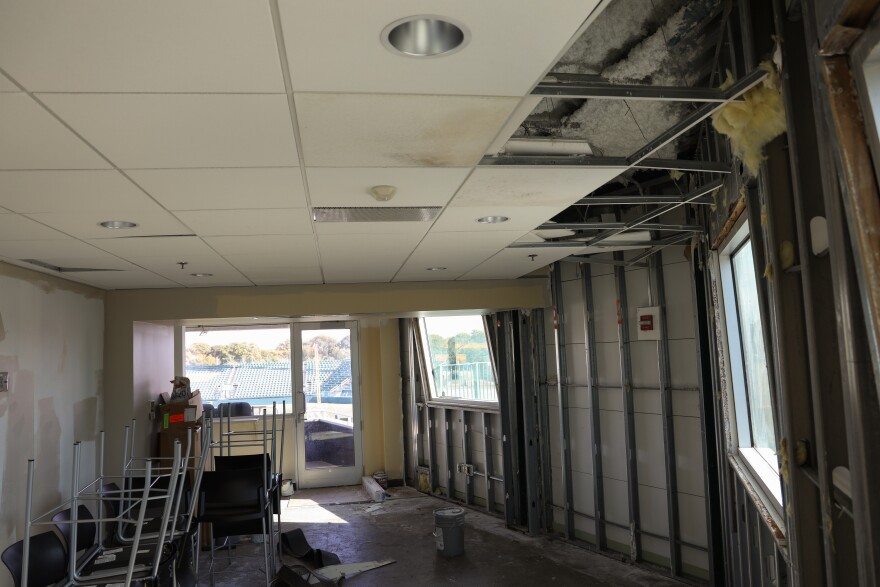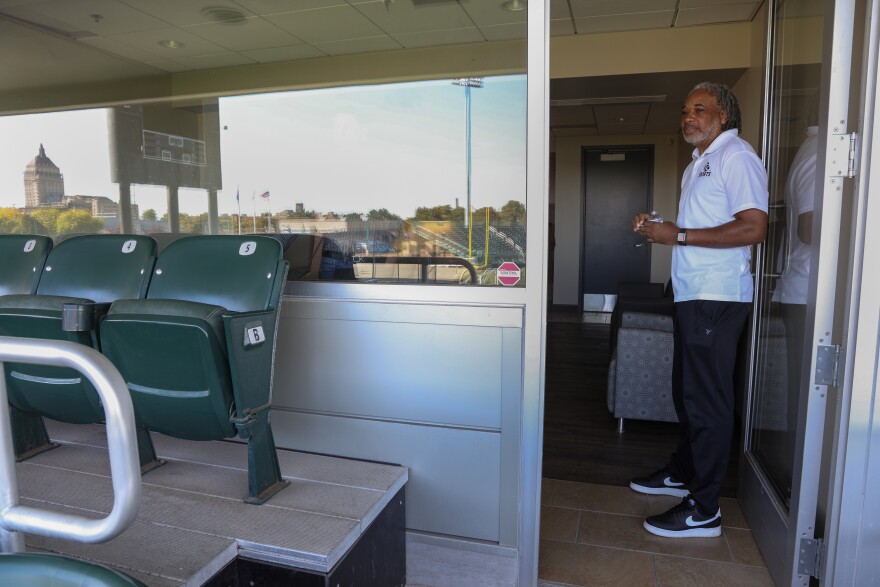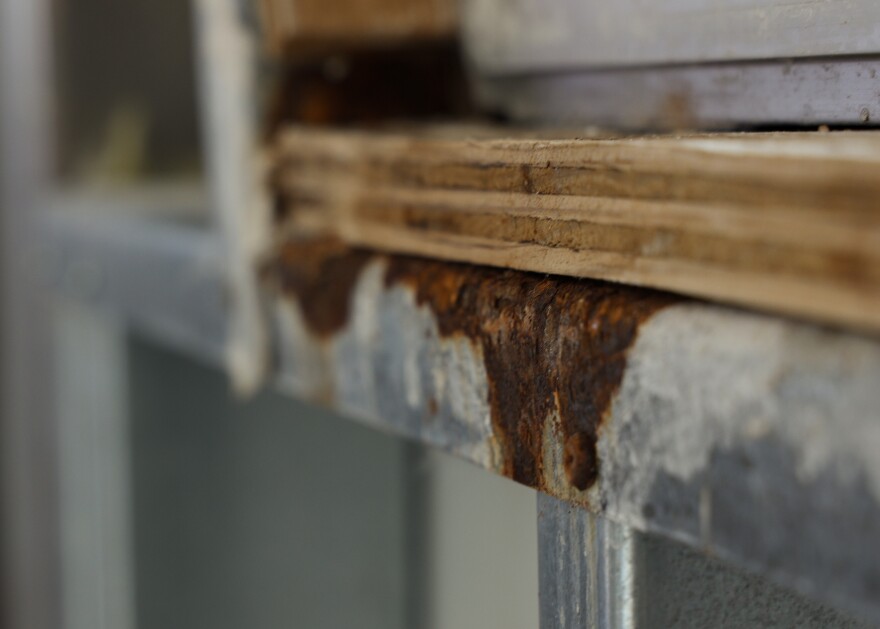Years ago, it became a struggle just to get the luxury box suites inside Rochester’s former minor league soccer stadium paid for and built.
This was almost two decades ago, and things were a mess then.
The stadium had opened, but the old team owners had run out of money and the stadium defaulted to the city. The state was auditing how the millions of dollars it already had invested got spent. And then-Gov. Eliot Spitzer, still settling into office, was slow to release the last $4 million needed.
Fast forward to today, and there’s still a mess, but of a different sort at what's now called the Rochester Community Sports Complex.
“Water infiltration has been an ongoing issue that has affected all stadium suites, as well as the pantry, press box, and restrooms,” reads a city request for proposals offering $900,000 to figure out how to fix the problem and oversee repairs. “This infiltration has led to damage of interior finishes and, in some areas, the presence of mold.”

The field is used from mid-February through December, most often by youth and high school sports teams. It serves as the home football stadium for several of the city’s charter schools.
But inside the largest of the luxury boxes, Suite 14, half of the flooring has been removed along with some ceiling tiles, and the outside wall has been taken down to the studs — “to prevent mold development due to persistent moisture,” according to the city.
The suite next door is also unusable after a fire that sparked during one of the several repair attempts. Ahead of the HBCU Football Classic last month, workers patched up any water-related damage in the remaining 12 suites.
“It's been ongoing, you know, working to fix it for the entire time I've been here,” said Eric Rose, director of community athletics for the city of Rochester. "There's been repairs, and then, you know, revisions to those repairs. ... It's been a constant, constant thing."

Rose’s tenure stretches back five years, but the city says the water problems began in 2016 — roughly six years after the suites were completed and 10 years after $40 million, largely state-financed stadium opened. The first game, appropriately, perhaps, was played in a downpour.
“The suites have an internal gutter system,” the city’s statement to prospective contractors reads, explaining the system funnels water away from the field-facing side of the suites.
Or it’s supposed to.
“However,” the statement continues, “these gutters are inadequately pitched, resulting in standing water remaining in the gutters. Additionally, fibrous insulation from the underside of the roof deck frequently detaches and clogs the gutters, further complicating drainage.”
The city has made several repairs: sealing, caulking, adding flashing, and has covered other sizable maintenance projects in the past. But there have been more problems recently: “New signs of water infiltration have appeared along the interior soffits in the middle of two suites, suggesting that the underlying issues remain unresolved.”

A total for what has been expended already was not immediately available.
The curious thing is why such pervasive water problems took years to materialize.
Rob Clark was the Rhinos owner from 2008 through 2015, and he said water leakage in the suites wasn’t a problem during that time. There were other maintenance issues, a list of them, identified by the ownership group when it took over management. And entering Clark’s final season owning the team, several remained, as both the team and the city were losing money.
Reports at the time told of the malfunctioning elevator, which had gotten stuck open the previous winter, gathering snow before it got fixed. When fans flooded the concourses at halftime, there wasn’t enough water pressure to flush the toilets on the upper levels.
“No disrespect,” the Rhinos then-president and COO Pat Ercoli told the Democrat and Chronicle in May 2015, “but at some point, we need to say, ‘OK, what is in the best interest of this facility and the community?”

It likely didn’t help matters when the Rhinos failed to field a team in 2018, leaving the stadium without a regular tenant until Flower City Union, separate men and women’s pre-professional soccer teams, formed years later.
But then, as now, it’s an under-used facility competing for investment with all of the city’s other needs. And the suites are not the money-generating feature originally envisioned.
"It's a perk,” Rose said. “At this point we haven't established, outside of Flower City Union, any permanent use for the space. So, yeah, it's primarily a perk for activities, you know, when we're hosting concerts or soccer games.”
Added Barbara Pierce, spokesperson for Mayor Malik Evans: "There is a return expected on any investment. ... We are hoping to see more interest in holding events there. So it's important to maintain it."
The city hopes to spend the next year selecting a consultant, having that firm investigate the problem and figure out a long-term solution, with the goal of doing the construction next winter.



